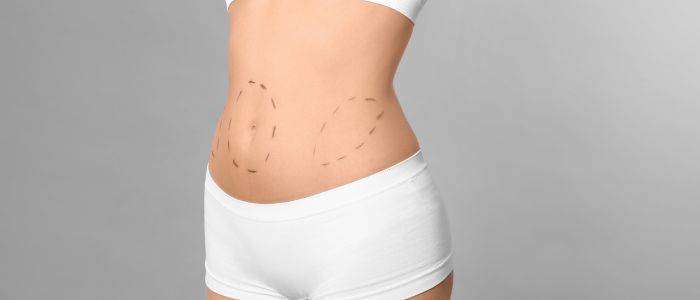
How to Lose Weight before Plastic Surgery
Losing weight prior to plastic surgery can be an important step in achieving optimal results and ensuring patient safety. In some cases, Consultant Plastic Surgeon Anca Breahna may recommend that you reach a certain weight or BMI before undergoing procedures such as tummy tuck, liposuction, or body contouring. Excess weight can increase the risk of complications during and after surgery, such as infection, poor wound healing, and blood clots. Additionally, carrying extra weight can make it more challenging for your surgeon to achieve the desired aesthetic outcome, as excess fat and skin can obscure the underlying contours of the body.
Local Resources for Losing Weight before Plastic Surgery in Chester
Losing weight before plastic surgery can enhance your results and reduce the risks associated with surgery. Here’s are some local resources in Chester that can support your weight loss journey, including nutritionists, fitness centres, and healthy eating options.
Nutritionists
- Eleanor Rees Nutrition: Eleanor Rees offers personalised nutrition plans, focusing on weight loss, behaviour change, and overall health improvement. She helps clients achieve their weight goals through tailored meal planning and lifestyle advice.
- Vie Nutrition: Vie Nutrition provides weight management programmes in Chester and nearby areas. Specialising in a holistic approach, they offer customised dietary plans for effective weight loss and health management.
- Jane Clarke Nutrition: Jane Clarke, a registered dietitian, offers Zoom, FaceTime and telephone consultations. With expertise in weight management and metabolic conditions, she tailors her advice to meet individual health and weight goals.
Fitness Centers
- The Gym Group Chester City Centre: A full-service gym offering personal training sessions designed for weight loss, incorporating both strength and cardio training. Group classes like HIIT and spinning are also available.
- Total Fitness Chester: This large gym provides a variety of facilities, including a pool, strength training, and group classes. Personal trainers can work with you to create weight loss and fitness plans.
- Nuffield Health Chester: Nuffield Health provides a comprehensive range of services, including fitness assessments and personalised workout plans. Their nutritionists and trainers work together to help clients achieve weight loss goals.
Healthy Eating Options
- Booths Supermarket: Known for its health-conscious range, Booths provides fresh produce, organic foods, and a range of nutritious, ready-to-eat meals suitable for weight loss diets.
- Chester Market: A local market offering fresh fruits, vegetables, and organic produce. It’s an excellent place to find quality ingredients for meal prep.
- The Food Assembly Chester: This community-based food network connects local farmers and producers with customers. It’s a convenient option for fresh and healthy ingredients directly from the source.
- Riverford Organic Farmers: Delivering organic produce boxes in Chester, Riverford provides fresh, seasonal vegetables, fruits, and meal kits ideal for healthy cooking at home.
- Ginger and Co. Deli: Known for its healthy meal options, Ginger and Co. provides fresh salads, wraps, and smoothie bowls that align with weight loss goals.
Medical Weight Loss Options
While diet and exercise are the foundation of weight loss, some people may benefit from medical interventions. Always consult with your GP or a specialist before considering these options.
Medication-Assisted Weight Loss Programs
For some people, prescription medications can be a helpful tool in their weight loss journey. These medications work in various ways, such as suppressing appetite, increasing feelings of fullness, or affecting how your body absorbs fat from food.
Common medications used in the UK include:
- Orlistat (Xenical): This medication works by preventing the absorption of some of the fat you eat.
- Liraglutide (Saxenda): An injectable medication that helps you feel full and reduces appetite.
- Naltrexone-bupropion (Mysimba): A combination drug that can help reduce appetite and control cravings.
It’s crucial to note that these medications are typically prescribed alongside a reduced-calorie diet and increased physical activity. They’re not magic pills and come with potential side effects, so they should only be used under close medical supervision.
Bariatric Surgery Options
For people with severe obesity, particularly those with a BMI over 40 (or over 35 with obesity-related health conditions), bariatric surgery might be an option to consider. These procedures can lead to significant weight loss and improvement in obesity-related conditions.
Common bariatric surgeries include:
- Gastric bypass: This procedure reduces the size of your stomach and bypasses part of your small intestine.
- Sleeve gastrectomy: A portion of the stomach is removed, creating a smaller, sleeve-shaped stomach.
- Gastric band: An adjustable band is placed around the upper part of the stomach to restrict food intake.
Bariatric surgery is a major procedure and should only be considered after thorough consultation with medical professionals. It requires significant lifestyle changes and long-term follow-up care.
Medically Supervised Very Low-Calorie Diets
In some cases, your doctor might recommend a very low-calorie diet (VLCD) for rapid weight loss. These diets typically provide 800 calories or less per day and are used for short periods under strict medical supervision.
VLCDs often come in the form of meal replacement products and are usually only recommended for individuals with a BMI over 30 who have been unsuccessful with other weight loss methods.
It’s important to understand that VLCDs can have side effects and are not suitable for everyone. They should only be undertaken with proper medical oversight to ensure your nutritional needs are met and your health is monitored.
Nutrition Guidelines to Lose Weight before Surgery
Adopting a balanced, nutritious diet is key to sustainable weight loss. Here are some principles to guide you:
Balanced Diet Principles
- Calorie awareness: To lose weight, you need to create a calorie deficit. However, it’s essential to ensure you’re still getting enough nutrients. Aim for a moderate reduction of 500-750 calories per day for safe, sustainable weight loss.
- Protein power: Include lean protein sources in each meal. Protein helps maintain muscle mass during weight loss and keeps you feeling full longer. Good sources include chicken, fish, lean beef, eggs, and plant-based options like beans and lentils.
- Fibre focus: High-fibre foods aid digestion, promote feelings of fullness, and can help lower cholesterol. Aim for plenty of vegetables, fruits, whole grains, and legumes.
- Healthy fats: Don’t shy away from fats completely. Incorporate sources of healthy fats like avocados, nuts, seeds, and olive oil in moderation.
- Hydration: Drink plenty of water throughout the day. Sometimes thirst can be mistaken for hunger.
- Mindful eating: Pay attention to your food while eating. Eat slowly, savour each bite, and listen to your body’s hunger and fullness cues.
Meal Planning Tips
- Prep in advance: Set aside time each week to plan and prepare meals. This can help you avoid impulsive, unhealthy food choices.
- Use the plate method: Fill half your plate with non-starchy vegetables, a quarter with lean protein, and a quarter with whole grains or starchy vegetables.
- Snack smart: Keep healthy snacks on hand for when hunger strikes between meals. Options could include fresh fruit, raw vegetables with hummus, or a small handful of nuts.
- Control portions: Use smaller plates, measure servings, and be mindful of portion sizes, especially for calorie-dense foods.
- Include variety: Eating a range of foods ensures you get a wide array of nutrients and helps prevent boredom with your diet.
Healthy Recipes
Here are a few simple, nutritious recipes to get you started:
Overnight Oats
- Mix 40g oats with 120ml skimmed milk and 60g Greek yoghurt.
- Add 1 tsp chia seeds and 1/2 tsp cinnamon.
- Top with a handful of berries and a few chopped nuts.
- Refrigerate overnight and enjoy in the morning.
Grilled Chicken and Vegetable Skewers
- Cut chicken breast and a variety of vegetables (bell peppers, courgette, red onion) into chunks.
- Thread onto skewers and brush with a mixture of olive oil, lemon juice, garlic, and herbs.
- Grill until chicken is cooked through and vegetables are tender.
Lentil and Vegetable Soup
- Sauté onion, garlic, carrots, and celery in a pot.
- Add red lentils, chopped tomatoes, vegetable stock, and your choice of herbs.
- Simmer until lentils are tender. Blend if desired for a smoother consistency.
Remember, these are just starting points. Feel free to adjust recipes based on your preferences and dietary needs.
Exercise Recommendations
Regular physical activity can help with weight loss and overall health. Here’s how to incorporate exercise safely and effectively into your routine:
Safe Exercise Routines for Different Fitness Levels
Beginner
- Start with brisk walking for 10-15 minutes, 3-5 times a week.
- Gradually increase duration and frequency as your fitness improves.
- Try gentle yoga or tai chi for flexibility and balance.
Intermediate
- Aim for 150 minutes of moderate aerobic activity or 75 minutes of vigorous activity per week.
- Include a mix of cardio (like jogging, cycling, or swimming) and strength training.
- Try interval training to boost fat burning.
Advanced
- Increase to 300 minutes of moderate aerobic activity or 150 minutes of vigorous activity per week.
- Incorporate high-intensity interval training (HIIT) for efficient calorie burning.
- Add more challenging strength training exercises.
Always start with a proper warm-up and end with a cool-down and stretching session.
Low-Impact Exercises for Those with Joint Issues
- Swimming or water aerobics: The water’s buoyancy reduces stress on joints while providing resistance for a great workout.
- Cycling: Whether on a stationary bike or outdoors, cycling is easy on the joints while providing an excellent cardiovascular workout.
- Elliptical machines: These provide a low-impact alternative to running that’s gentle on knees and ankles.
- Pilates: This form of exercise focuses on core strength, flexibility, and body awareness without putting excessive strain on joints.
- Rowing: Whether on a machine or in water, rowing is a full-body workout that’s easy on the joints.
Importance of Combining Cardio and Strength Training
While cardiovascular exercise is excellent for burning calories and improving heart health, incorporating strength training into your routine offers additional benefits:
- Increased metabolism: Muscle tissue burns more calories than fat tissue, even at rest. Building muscle can help you burn more calories throughout the day.
- Improved body composition: Strength training helps preserve and build lean muscle mass while you lose fat, leading to a more toned appearance.
- Better functional fitness: Stronger muscles make daily activities easier and can help prevent injuries.
- Enhanced bone health: Weight-bearing exercises help maintain and even increase bone density, reducing the risk of osteoporosis.
- Improved insulin sensitivity: Regular strength training can help your body use insulin more effectively, which is beneficial for weight management and overall health.
Aim to include strength training exercises for all major muscle groups (legs, hips, back, abdomen, chest, shoulders, and arms) at least twice a week. This can involve using weight machines, free weights, resistance bands, or your own body weight.
Remember to start slowly and gradually increase the intensity and duration of your workouts. It’s always advisable to consult with a fitness professional or your healthcare provider before starting a new exercise regimen, especially if you have any health concerns or physical limitations.
Technology and Apps
In today’s digital age, many technological tools can support your weight loss journey. Here are some recommendations:
Recommended Weight Loss and Fitness Tracking Apps
- MyFitnessPal: This popular app allows you to log your food intake and exercise, providing a comprehensive overview of your daily calories and nutrients. It has a vast database of foods, making it easy to track your meals accurately.
- Lose It!: Similar to MyFitnessPal, Lose It! offers calorie counting and food tracking features. It also provides a supportive community and challenges to keep you motivated.
- Strava: Ideal for runners and cyclists, Strava tracks your routes, pace, and progress over time. It also has a social component, allowing you to connect with friends and join challenges.
- Nike Training Club: This app offers a wide range of workout videos for all fitness levels, from yoga to strength training to cardio. It’s like having a personal trainer in your pocket.
- Noom: Combining food logging with behavioural psychology, Noom aims to help you understand your relationship with food and develop healthier habits.
Remember, while these apps can be helpful, they’re tools to support your journey, not substitutes for professional medical advice.
FAQs about Losing Weight before Plastic Surgery
How much weight should I lose before surgery?
- The amount of weight you should lose depends on your current BMI, the type of surgery you’re planning, and your overall health. Generally, it’s recommended to be within 10-15 pounds of your ideal weight before undergoing plastic surgery. However, this can vary, so it’s best to discuss specific goals with Anca.
How long before surgery should I start my weight loss journey?
- It’s ideal to start your weight loss journey as early as possible. Healthy, sustainable weight loss typically occurs at a rate of 1-2 pounds (0.5-1 kg) per week. So, if you need to lose a significant amount of weight, you should start several months before your planned surgery date.
Will I need to continue losing weight after surgery?
- It’s important to maintain a stable weight after surgery to preserve your results. Your surgeon will advise you on any additional weight loss needed post-surgery, but generally, dramatic weight changes after plastic surgery can negatively affect your results.
Can I have surgery if I’m overweight?
- While being at your ideal weight is optimal, being overweight doesn’t necessarily disqualify you from all plastic surgery procedures. However, it may increase risks and potentially affect results. Anca will assess your individual case and advise accordingly.
How does weight loss affect my skin, and how will this impact my surgery?
- Significant weight loss can result in excess, sagging skin. This may influence the type of procedure you need or the extent of the surgery required. For example, you might need a more extensive tummy tuck or body lift procedures.
Is it safe to use weight loss supplements before surgery?
- Many weight loss supplements can interfere with anaesthesia or increase surgical risks. Always inform your surgeon about any supplements you’re taking, and generally, it’s advisable to stop taking them several weeks before surgery.
How can I maintain my weight loss after surgery?
- Maintaining your weight after surgery involves continuing the healthy habits you developed during your weight loss journey. This includes following a balanced diet, regular exercise (as advised by your surgeon during recovery), and ongoing use of tools like food tracking apps if you found them helpful.
Further Reading about Preparing for Plastic Surgery with Consultant Plastic Surgeon Anca Breahna
- Read more about Recovery Tips and Instructions
- Read more about How Alcohol Affects Plastic Surgery Results
- Read more about How Alcohol Affects Plastic Surgery Results
- Read more about Risks of Smoking before or after Breast Surgery
- Read more about What Is a Healthy Weight for Tummy Tuck Surgery?
References for Losing Weight before Plastic Surgery
- Safety of Aesthetic Surgery in the Overweight Patient
- Elective Surgery in Adult Patients with Excess Weight: Can Preoperative Dietary Interventions Improve Surgical Outcomes? A Systematic Review
- Very low energy diets prior to bariatric surgery may reduce postoperative morbidity: a systematic review and meta-analysis of randomized controlled trials
 Ms Anca Breahna, PhD, MSc, FEBOPRAS, FRCS (Plast) is a highly regarded Consultant Plastic Surgeon specialising in the field of Aesthetic and Reconstructive Plastic Surgery. Anca performs a range of
Ms Anca Breahna, PhD, MSc, FEBOPRAS, FRCS (Plast) is a highly regarded Consultant Plastic Surgeon specialising in the field of Aesthetic and Reconstructive Plastic Surgery. Anca performs a range of 